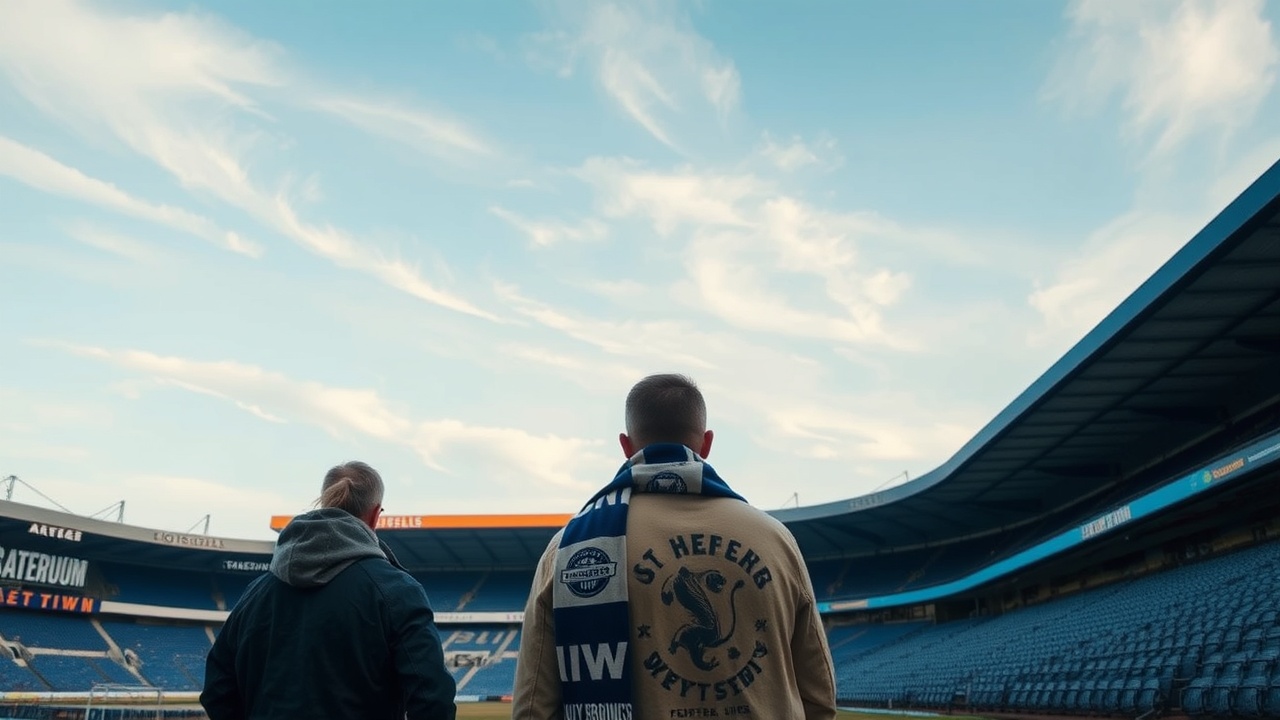Sheffield Wednesday’s Financial Turmoil
In a shocking turn of events, Sheffield Wednesday, a club with a storied past, now finds itself grappling with severe financial turmoil that threatens its very existence. The trouble began to surface as far back as July 2020, when the club was penalized with a 12-point deduction for breaching profit and sustainability regulations—an issue ignited by a late document submission regarding the sale of their historic ground, Hillsborough. Though the penalty was later reduced to six points upon appeal, the club’s subsequent relegation to League One due to goal difference marked the beginning of an enduring struggle.
Rich History and Recent Struggles
Founded in 1867, Sheffield Wednesday—known as the Owls—has had a rich history in English football, being among the oldest clubs still in operation today. Despite a glory-laden past with ten major trophies, including their last triumph in the League Cup in 1991, the club has not won a major title since 1935. Recently, however, their history has been overshadowed by their ongoing descent and financial distress, compounded by negative leadership from current owner Dejphon Chansiri, a Thai businessman whose opaque financial dealings cast a long shadow over the club’s prospects.
Leadership and Management Issues
Chansiri has been in charge since 2015, taking over from Milan Mandaric, and while his initial years saw the club close to securing promotion back to the Premier League, structural issues and overspending have led to a dismal present. His management style—characterized by making unilateral decisions without a supportive executive structure—has transformed Wednesday into a vessel seemingly adrift at sea.
Current Crisis and Fan Unrest
The current season is on the verge of starting without the club even having a full squad or coaching staff. Sheffield Wednesday’s situation reached a crisis point recently with delayed wages affecting not just players but all employees. Key departures in the off-season, including players opting out due to unpaid wages and a head coach leaving amid disputes, have decimated the squad. With only 16 senior players remaining and no prospects for reinforcements due to widespread transfer embargoes, hopes for the upcoming Championship season appear bleak.
The reality of their plight is compounded by impending protests from fans dissatisfied with ownership and management decisions. A demonstration is set for their opening game against Leicester City, reflecting growing unrest among supporters who fear for the club’s future under Chansiri’s stewardship. The collapse of another football club due to financial mismanagement—like Bury in 2019—lingers heavily in the minds of the Wednesday’s fans.
Future Uncertainty
What remains uncertain is whether the English Football League (EFL) will intervene as the club’s situation worsens, particularly with a new independent regulator on the horizon. Previously, the EFL has shown reluctance in intervening decisively, but the pressure is mounting against the backdrop of a potential collapse. It’s widely recognized that Chansiri’s decisions are paramount to the club’s survival; without a tangible change in leadership or an infusion of new capital, Sheffield Wednesday’s historic name could soon fade into oblivion, and a once-prominent club may vanish from the English football landscape altogether.




